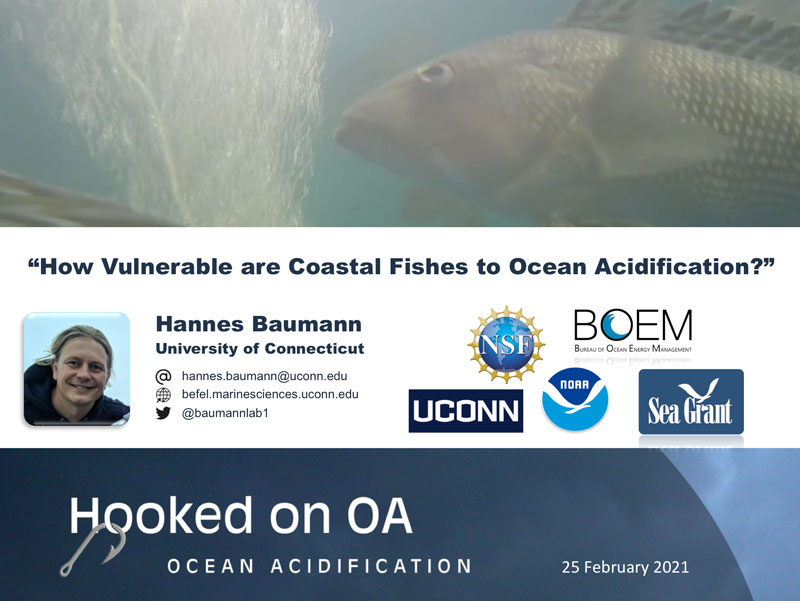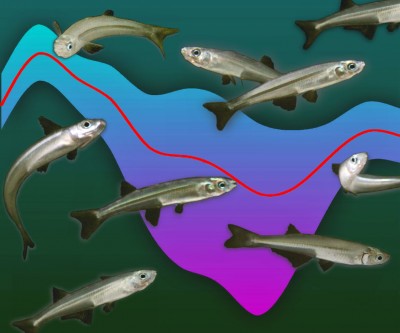25 February 2021. The Mid-Atlantic Ocean Acidification Network (MACAN) organized a four-part webinar series on Ocean Acidification geared specifically towards recreational anglers and shellfish collectors in the Mid-Atlantic region. The series is called “Hooked on OA” and invited Hannes on this February Thursday to explain the state of OA science particularly for fishes. A big thanks to the organizers and the more than 50 people who participated in this webinar.

If you missed it and are still interested, you can watch the Zoom webinar here:
